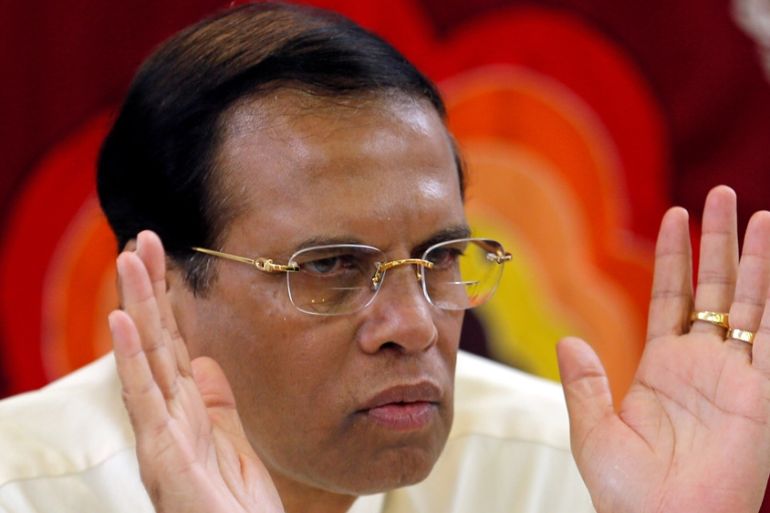Sri Lanka president signs death warrants to end moratorium
Executions by hanging would be the first carried out in Sri Lanka since 1976 when a moratorium was implemented.

Sri Lanka‘s president signed death warrants on Wednesday for four drug offenders who will “very soon” become the first people executed in decades on the island.
Maithripala Sirisena said he completed formalities to end a 42-year-old moratorium on the death penalty, which he said was needed to clamp down on a rampant narcotics trade.
Keep reading
list of 4 itemsRecord number of people executed for drug offences in 2023
Executions in Iran hit 8-year high in 2023
Australian writer Yang Hengjun sentenced to death on China spy charges
“I have signed the death warrants of four. They have not been told yet. We don’t want to announce the names yet because that could lead to unrest in prisons,” Sirisena told reporters at his official residence.
He did not say when the executions would be carried out, only that it would be “very soon”.
An official in Sirisena’s office said the president wanted the hangings to be a powerful message to the illegal drugs trade.
Sirisena said there were 200,000 drug addicts in the country and 60 percent of the 24,000 prison population were drug offenders.
|
|
His remarks came a day after Amnesty International said it was “alarmed” over media reports of preparations to resume executions.
“Sri Lanka’s President Maithripala Sirisena must immediately halt his plans to resume executions,” Amnesty said in a statement.
Sri Lanka is a party to the international convention on civil and political rights, which sets the abolition of the death penalty as a goal to be achieved by countries, it added.
No executioner
Sirisena in February announced the country would carry out the first executions in decades, saying he had been inspired by President Rodrigo Duterte’s deadly anti-drug campaign in the Philippines.
The president has also appealed to human rights organisations not to pressure him.
Criminals in Sri Lanka are regularly given death sentences for murder, rape, and drug-related crimes. But since 1976 their punishments have been commuted to life imprisonment.
The country currently has no executioner.
The justice ministry said more than a dozen people had been shortlisted to fill the position, but no formal appointment has been made.
While Sri Lanka’s last execution was more than four decades ago, an executioner was in the post until his retirement in 2014. Three replacements since have quit after short stints at the unused gallows.